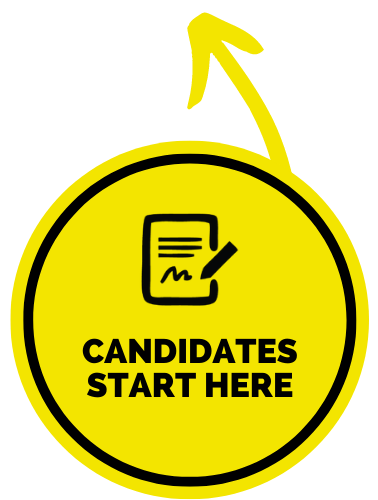
According to a study by LinkedIn, 92% of talent professionals claim that soft skills are as or more important than hard skills when making hiring decisions about a candidate. Clearly then, soft skills are something to keep an eye on when you’re job-seeking. But what are they and why are they so important to your job search? Here is your brief guide to what soft skills are and how to highlight them effectively.
What are soft skills?
According to Jennifer Smith from Flourish Careers, “soft skills are intangible attributes related to how you work.” Whereas hard skills are usually related to specific knowledge, soft skills focus on your behaviours and habits at work. They are qualities you possess that determine how you perform at work and are normally more difficult to measure than hard skills as there’s no concrete and definite measure for it – they are only really determinable over a period of time.
What are some examples?
- Leadership (Conflict Management, Empathy, Influencing, Project Management, Motivation, etc.)
- Work Ethic (Attention to Detail, Adaptability, Working Well Under Pressure, Creative Thinking, Reliability, etc.)
- Communication (Active Listening, Negotiating, Presenting, Verbal and Nonverbal Communication, etc.)
- Teamwork (Emotional Intelligence, Patience, Self-Awareness, Diversity and Disability Awareness, Empathy, etc.)
- Problem-Solving Skills (Analytical Thinking, Risk Management, Troubleshooting, Innovation, etc.)
Why are soft skills important?
Everyone has a different set of soft skills and this affects how the workplace runs. For a workplace to run effectively, a business needs as complete a set of soft skills in its employees as possible. Certain staff members might have strong leadership skills and so are well suited to management roles. People with good interpersonal and communication stills will probably be suited to roles that involve training or on-boarding new staff. Employers are interested in your soft skills because they recognise gaps in the company’s skill base or know that certain skills are required to carry out some roles effectively.
How do I identify and improve my soft skills?
1. Review previous feedback on your work. Are there common threads? Are there certain words that come up often? This is probably a good indication of areas where your soft skills are strong.
2. Review your past and present roles to determine which skills or traits have helped you achieve and succeed at your responsibilities.
3. Take a skills assessment test. There are tests such as CliftonStrengths that will give you an in-depth look at what your soft skills are, but simpler online tests will also help give you a good starting point for recognising your skills.
4. Once you have identified your soft skills, choose one or two to work on. Find opportunities at work or elsewhere where you will have to use these skills. If it’s one of your weaker skills, start small and work your way up to bigger responsibilities. For instance, if it’s your leadership skills you want to improve, volunteer to lead something like the office events team and gradually work your way up to applying for management positions.
5. Find a mentor who is strong in the skill you want to improve who could guide and advise you.
How do I highlight my soft skills?
When applying for roles, it’s always important to pay attention to the soft skills listed in the job spec or advert. This will give you an idea of if you are suited to the role and the kind of person the company is looking for. Once you’ve established that, here are some ways you can highlight these skills when you apply:
CV
If there’s space on your CV, it’s helpful to list some of your soft skills. However, it’s far more important to give practical examples of how you’ve utilised these in your previous roles. When listing your responsibilities and achievements, make sure that you include examples of how your soft skills have helped you.
Cover letter
In a similar way to your CV, highlight the soft skills that the company is looking for by providing examples of how you’ve practically utilised these in previous roles. E.g. In my previous role as a Trainer, I utilised my excellent verbal and written communication skills to compile effective Training Presentations.
Interviews
Look up examples of frequently asked soft-skills questions and plan out how you would answer these. You will feel less put on the spot and more confident when discussing these with your interviewer.
While everyone’s soft skills are different and the way you highlight them may be different to someone else’s, we hope this gives you a good starting point for including them in your applications.
For more helpful job-seeking advice, check out some of our previous posts:
For more helpful tips on soft skills and more, follow our pages:









